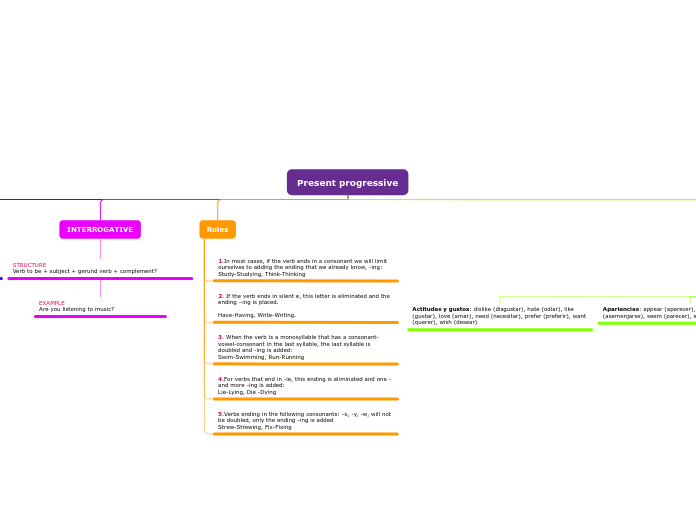av jaminton ordoñez 1 år siden
191
Present progressive
In English, the present continuous tense is used to describe ongoing actions. Specific rules govern how verbs are conjugated in this tense. For verbs ending in a silent 'e,' the 'e'

av jaminton ordoñez 1 år siden
191

Mer som dette